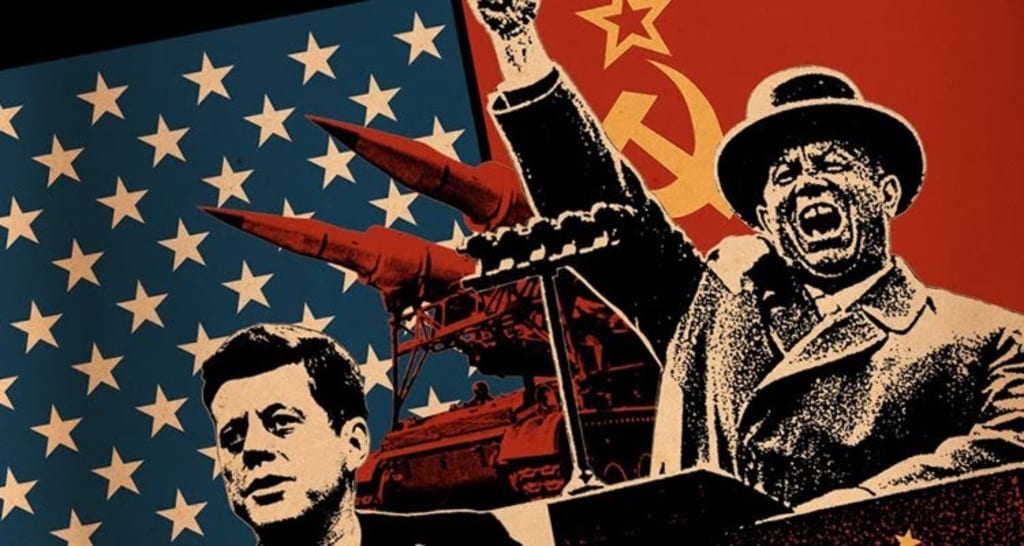The Cold War: A Geopolitical Conflict
From Post-World War II Tensions to the Collapse of the Soviet Union

The Cold War was a geopolitical conflict between the Western powers, led by the United States and its NATO allies, and the communist states, led by the Soviet Union, which lasted from the end of World War II in 1945 until the collapse of the Soviet Union in 1991. The term “cold” is used because the conflict never escalated into a full-scale military conflict, but instead was primarily fought through political, economic, and military means.
The roots of the Cold War can be traced back to the differing ideologies of capitalism and communism and the struggle for power and influence between the two superpowers. After World War II, the United States and the Soviet Union emerged as the dominant global powers, each with its own sphere of influence and interests. The Soviet Union, following the teachings of Karl Marx and Friedrich Engels, aimed to spread communism throughout the world, while the United States sought to prevent the spread of communism and maintain a capitalist system.
The first major event of the Cold War was the Berlin Blockade in 1948, when the Soviet Union attempted to cut off all land and water access to West Berlin in an effort to force the Western powers to abandon the city. The United States responded by launching the Berlin airlift, which delivered supplies to the city and broke the blockade. This was a clear demonstration of the growing tensions between the two superpowers and set the stage for future conflicts.
Throughout the 1950s and 1960s, the Cold War was marked by numerous crises, including the Korean War, the Bay of Pigs invasion, and the Cuban Missile Crisis. The Korean War was a conflict between North Korea, backed by the Soviet Union and China, and South Korea, backed by the United States and its allies. The war lasted from 1950 to 1953 and resulted in a stalemate, with the two sides remaining separated by the 38th parallel.
The Bay of Pigs invasion was an unsuccessful attempt by the United States to overthrow the Cuban government in 1961. The Cuban Missile Crisis was the closest the world came to nuclear war, as the Soviet Union placed missiles in Cuba, which was just 90 miles from the United States. The crisis was resolved after the Soviet Union agreed to remove the missiles in exchange for a promise from the United States not to invade Cuba.
In addition to these conflicts, the Cold War was also marked by a continuous arms race, as both superpowers sought to develop and possess the most advanced weapons and military technology. The United States and the Soviet Union both developed and tested numerous nuclear weapons, which led to a state of mutual assured destruction, where a nuclear war would have catastrophic consequences for both sides.
The end of the Cold War can be traced back to the policies of Soviet leader Mikhail Gorbachev, who introduced the policies of perestroika (economic restructuring) and glasnost (openness and transparency) in the late 1980s. These policies aimed to reform the Soviet economy and increase freedom of speech and expression. These changes, combined with the increasing economic difficulties faced by the Soviet Union, led to the fall of the Soviet Union and the end of the Cold War.
The Cold War had far-reaching effects on the world, including the formation of the United Nations, the spread of communism in many countries, and the development of nuclear weapons. Despite the end of the conflict, the legacy of the Cold War continues to shape the world today, with many of the political and ideological divisions it created still present in the 21st century.





Comments
There are no comments for this story
Be the first to respond and start the conversation.